Two new Linux handhelds with nostalgic vibes
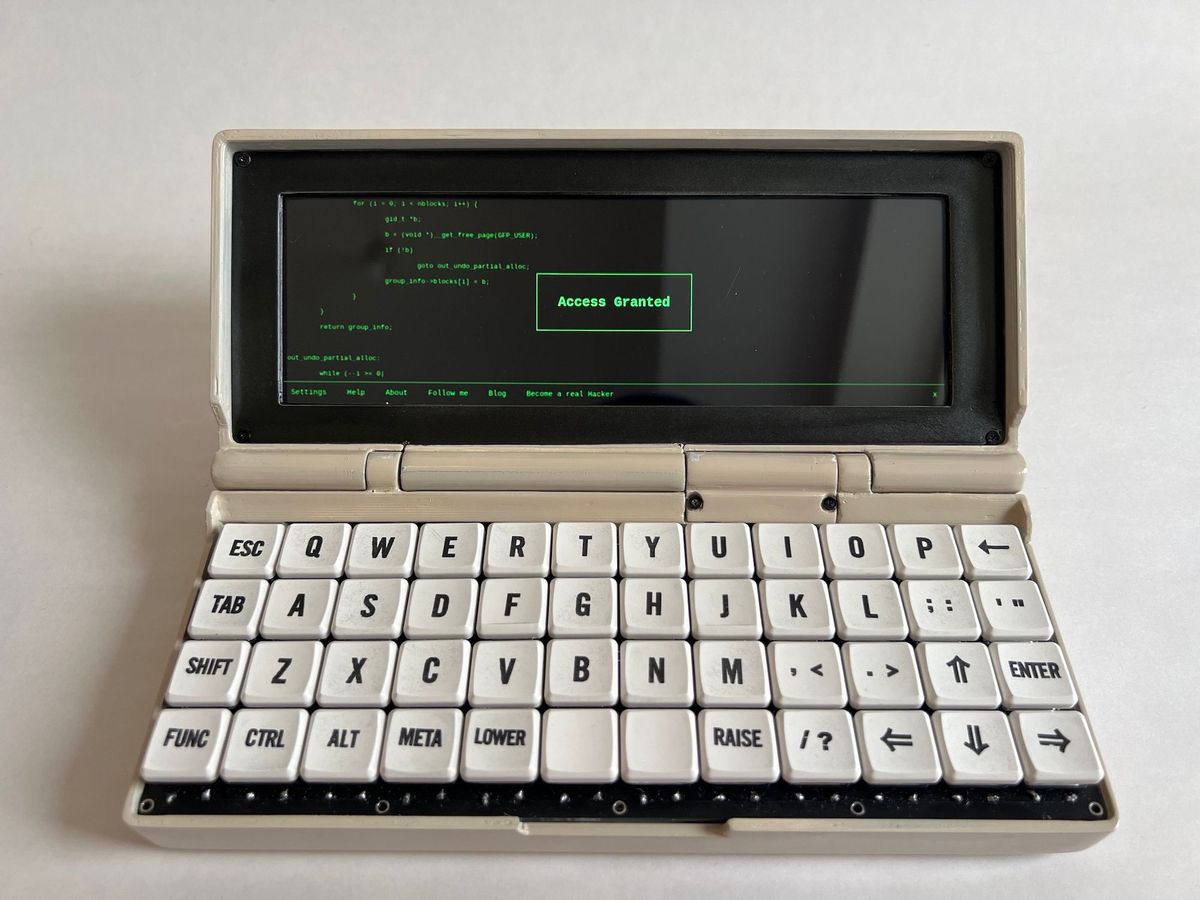
Our long-time followers will know how much we love PDAs, be them Linux evergreens, radical RISC-V experiments or somewhat esoteric Android/Linux hybrids. Not one, but two new homebrew PDAs were presented in these last weeks, the former based on a RISC-V design, the latter on the new Raspberry Pi Zero2 Wireless single board computer.
ClockworkPi DevTerm
The first of these is the DevTerm by ClockworkPi, a slightly typewriter-like Linux PDA which comes with a high-performance CPU, builtin thermal printer, a decent keyboard with trackball, and other goodies. Being initially released around the Pi Zero CM3, the DevTerm is now (also) sold in a variant based upon ClockworkPi's new RISC-V SoM, which may trade some of the power and the GPU of the Pi SoC for a fully open-source ISA, for an extra $10. There is a choice of 5 core modules, namely the CM3, plus other SoC options such as the mighty RK3399 (A0602/04), used on the PineBook Pro among others, another not-so-clear chip (A0401/02) which could be an Allwinner H6, and the AllWinner D1 RISC-V chip mentioned above. Modules should be entirely swappable, in a satisfyingly modular fashion, although not much information is given on this.
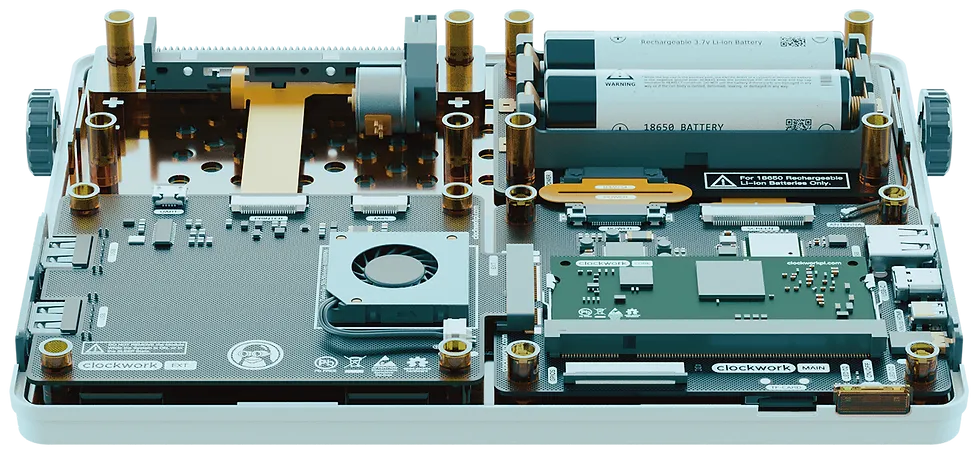
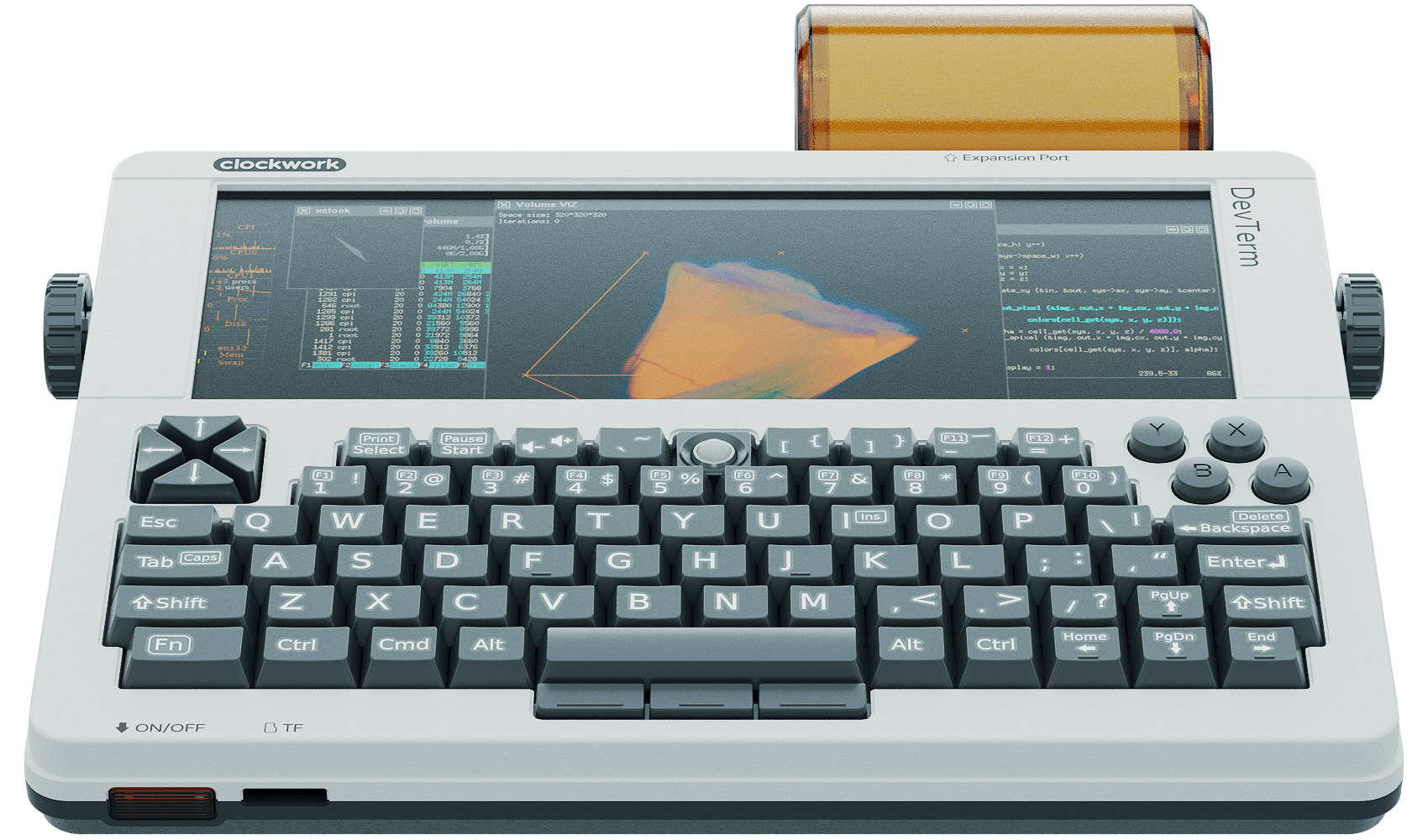
The DevTerm is (partially?) open-hardware, but can also be purchased for $239 with 1GB RAM. The technical specifications of the model for sale are the following:
- ClockworkPi v3.14 mainboard
- Base module:
either R-01 Core Module (RISC-V RV64IMAFDCVU, 1GHz, 64-bit, No GPU, 1GB DDR3),
or ARM-based Raspberry Pi Compute Module 3 - 6.86" IPS LCD screen
- Clockwork 65% keyboard
- 2x 18650 Li-Ion battery slots
- Dual speaker
- Built-in 58 mm 200dpi thermal printer (!)
- Shells and bracket system
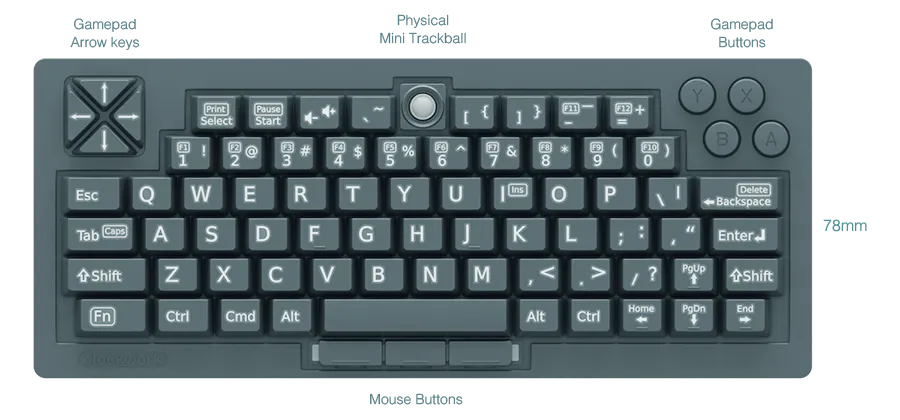
In some sense, we could say that both the DevTerm and the considerably more limited, Allwinner F1C100s-based "Minimum Viable Computer" ($15 to realize) concepts take designs from the past and blend them with the good efficiency of today's processors, providing minimum computing hardware for developer tasks. But while the former looks like a usable Linux handheld for those with no ambitions in terms of processing speed, the M.V.C. is rather an experiment of inexpensive Linux computing than anything else.
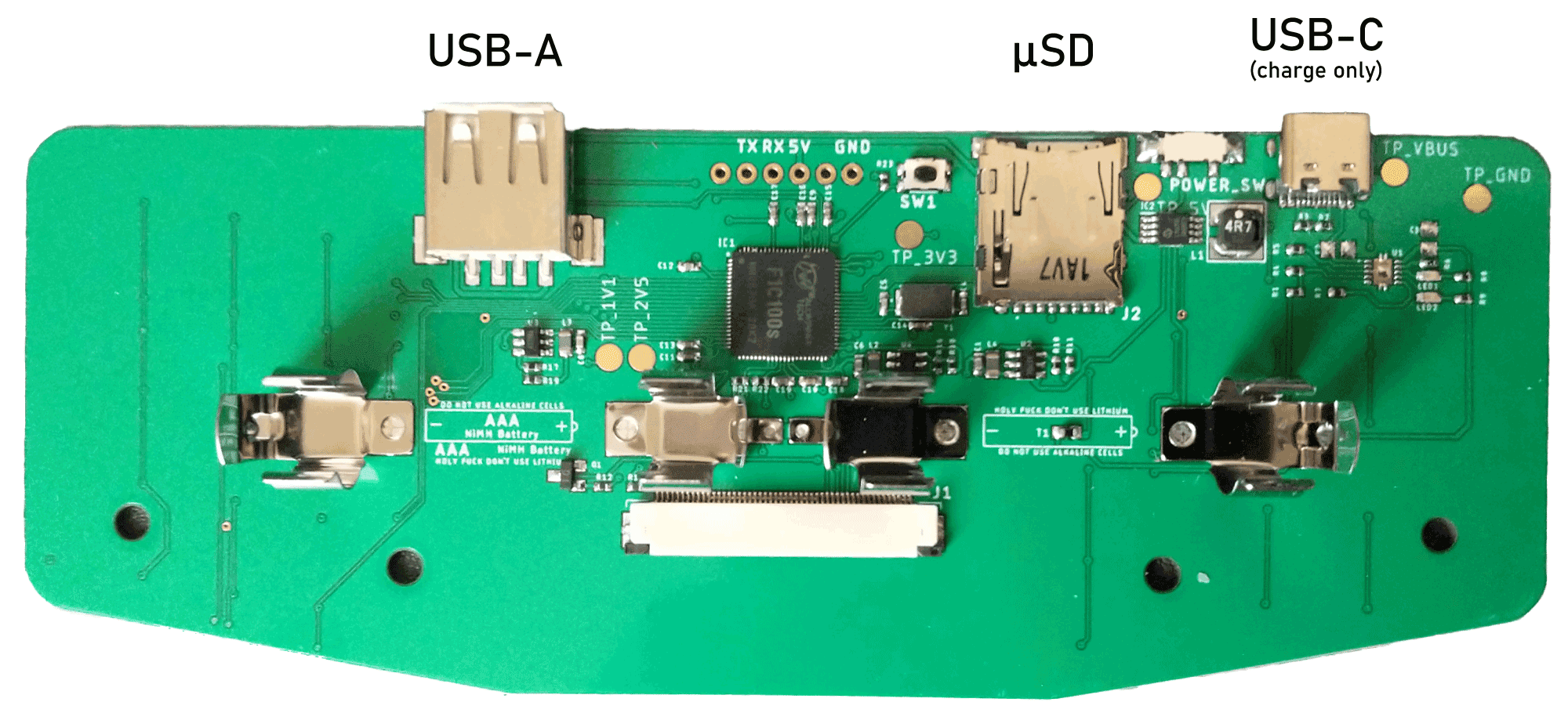

Penkesu
But the DevTerm is not the only new PDA. Another handheld was announced last month: the Penkesu, realized by Penk Chen, the same designer behind the CutiePi Tablet that we had the chance to review in depth last month. It is slightly less esoteric, but costs a fraction to realize, and uses a very similar base hardware configuration.
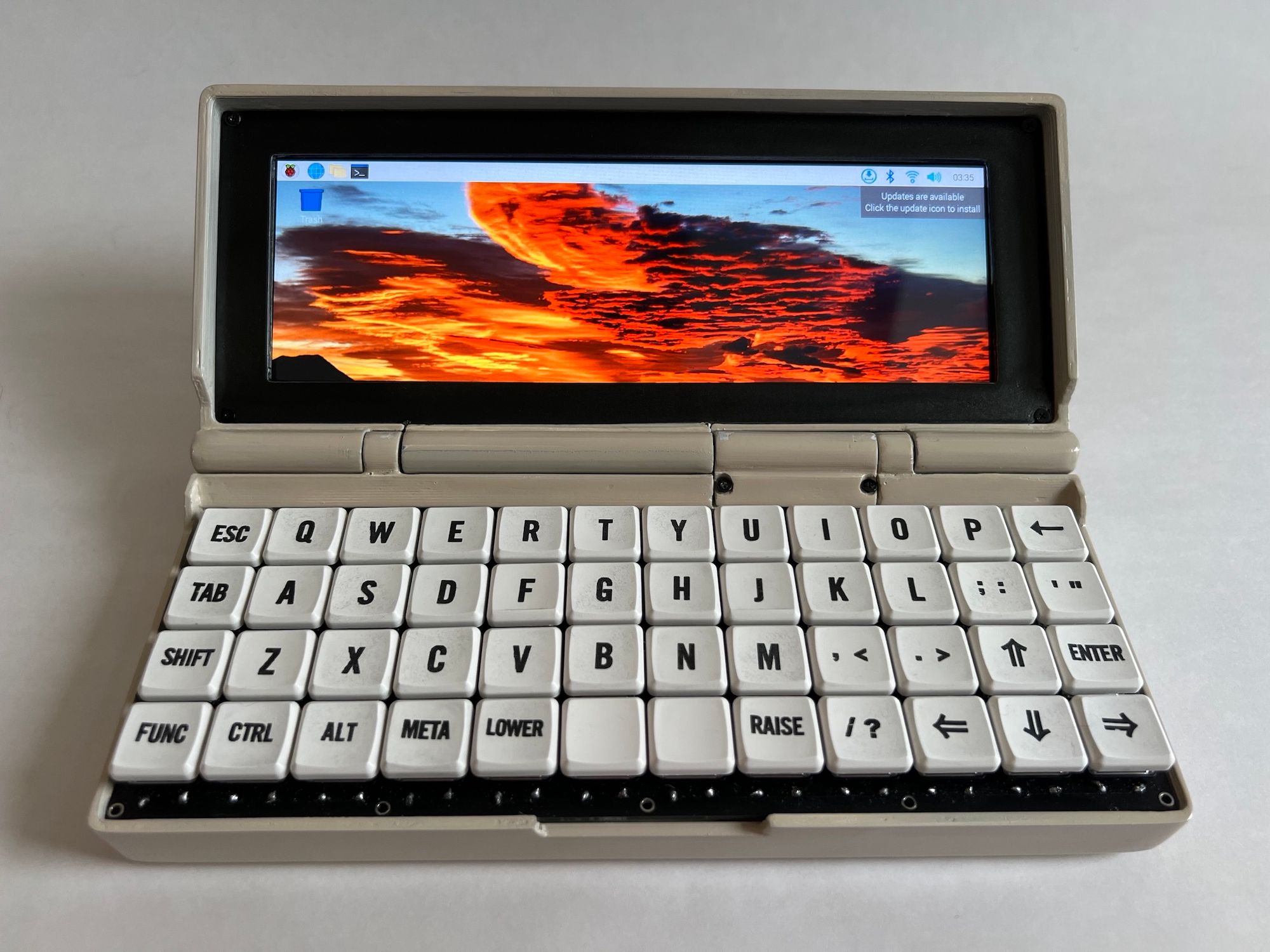
This is certainly not the first time a Raspberry Pi handheld is realized: the mutantC, for example, is a distinctively homemade PDA based on a full-size Pi board. Yet the Penkesu is probably the most unique among these designs: not being for sale, but rather encouraging self-development, with its extended LCD touchscreen layout closely resembling Nokia Communicators from the early 2000s. Plus, of course, a mechanical keyboard.
Penkesu's hardware is so open that, at the moment, you can only make it at home. It is based on the tiny Raspberry Pi Zero 2W board, so using the same, respectably fast SoC of a Raspberry Pi 3. The charm of its undeniably vintage design might not be entirely understood by those outside the haute couture of tech history, but it will turn enthusiasts' heads like nothing else.
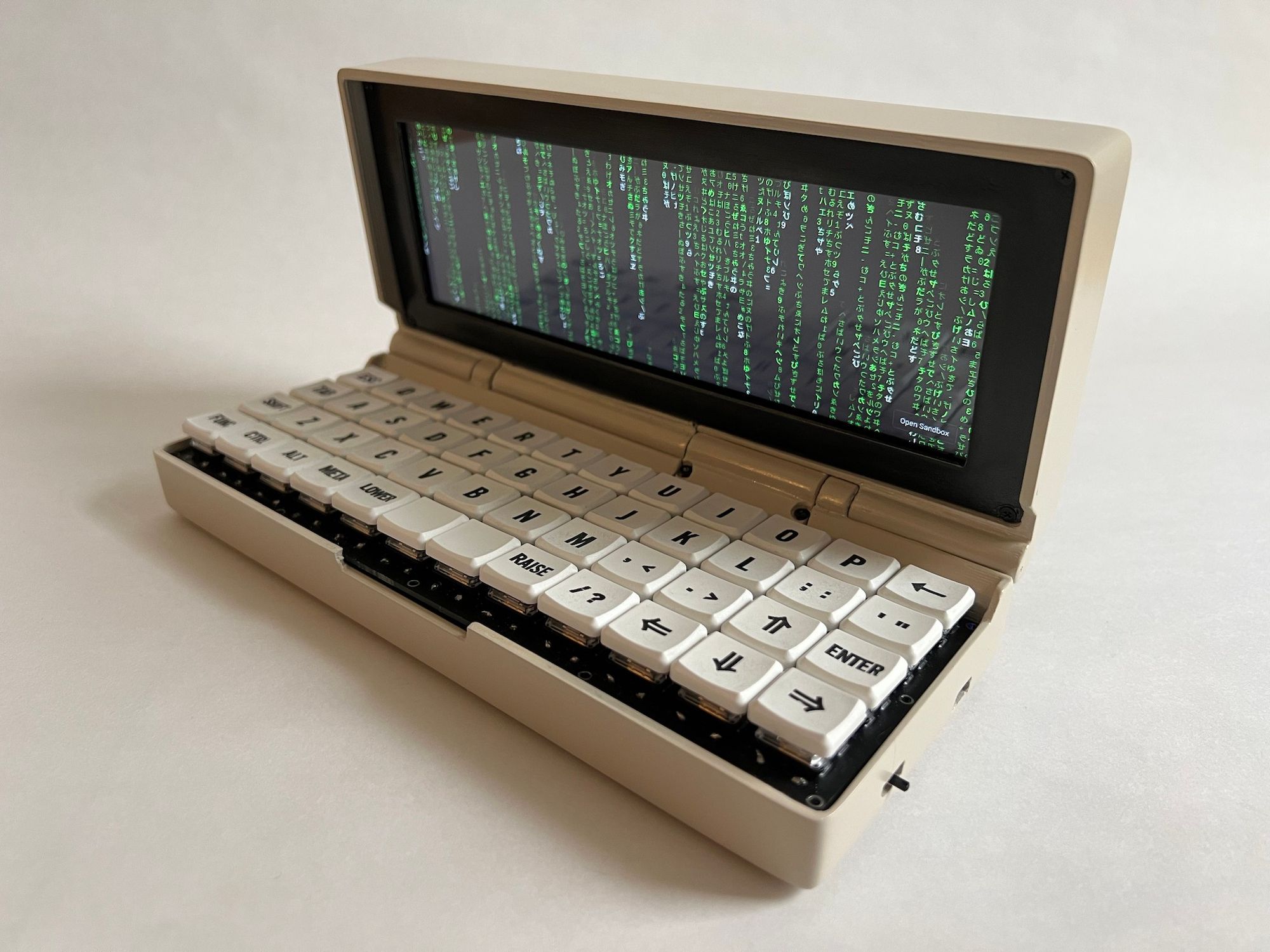
The screen used, an off-shelf capacitive panel by "WaveShare", is diagonally large (7.9") and sports high resolution, although in a curious format. To make it even nerdier, the hinges are repurposed from old Nintendo GameBoy consoles, and the instructions to build one look feasible in a weekend, unlike most overly complex multi-layered assemblies of modern mobiles.
The device is undeniably thick, but some of this is due to the ortholinear mechanical keyboard that it integrates. And Linux mobility expanding to this kind of homebrew devices rather than limited to obscure, black-slab-shaped modern phones, is one of the evolutions we often wished to see in technology.
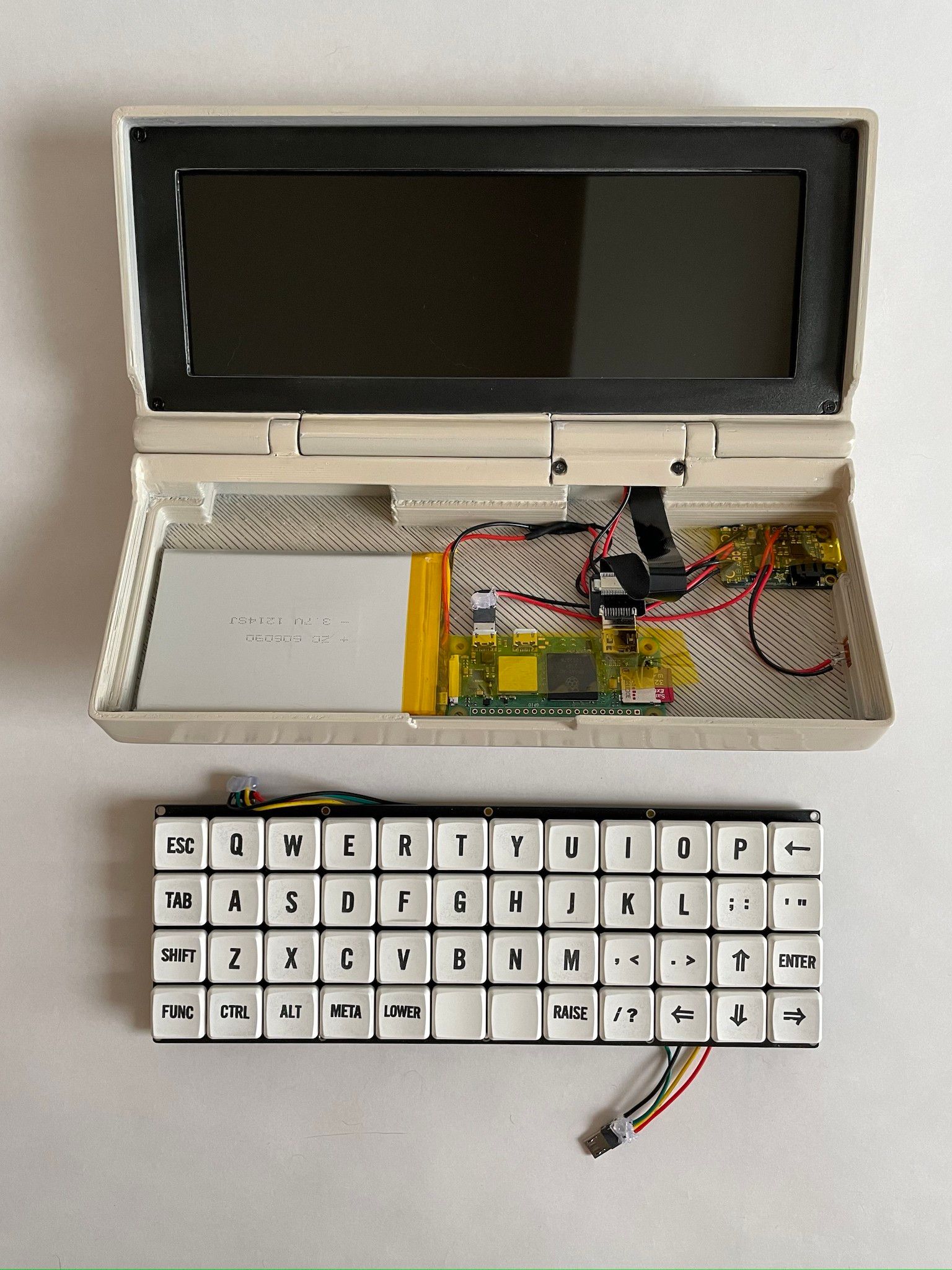
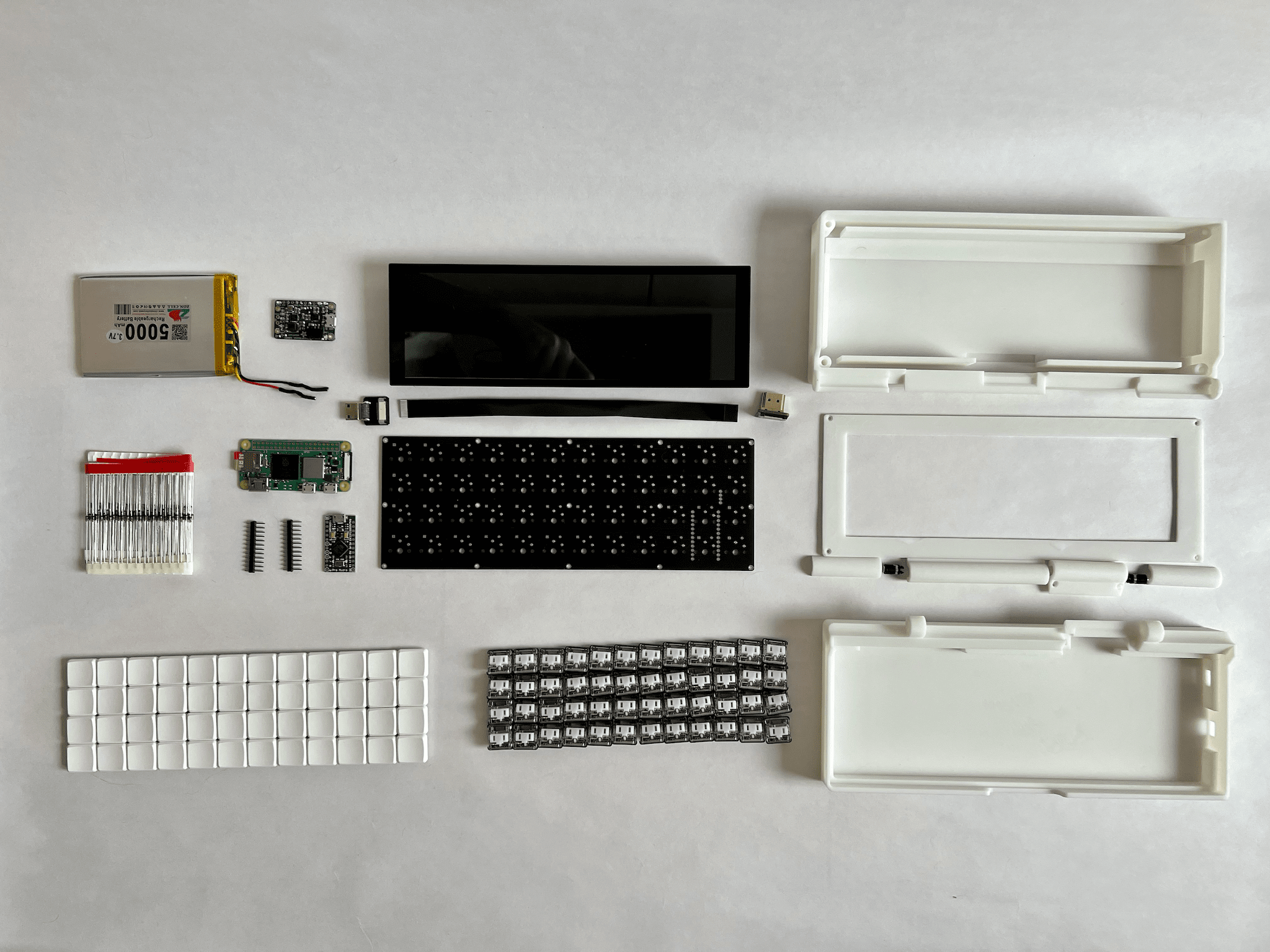
You can find more information about the DevTerm and Penkesu on their official websites, both of which are linked below.




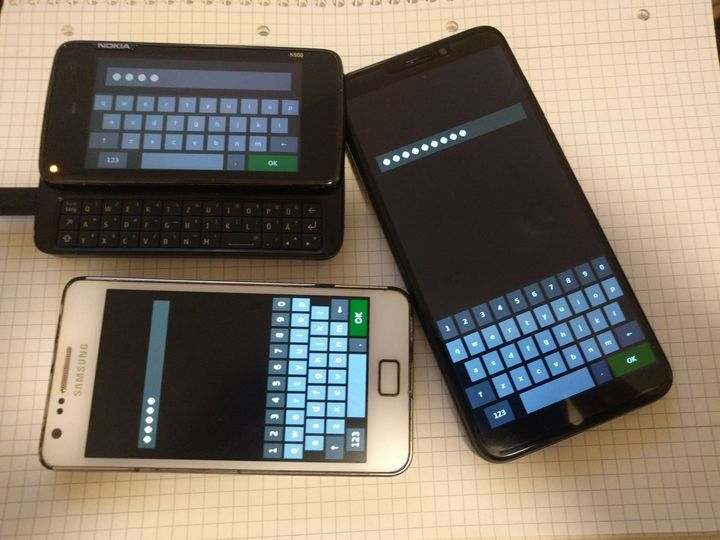

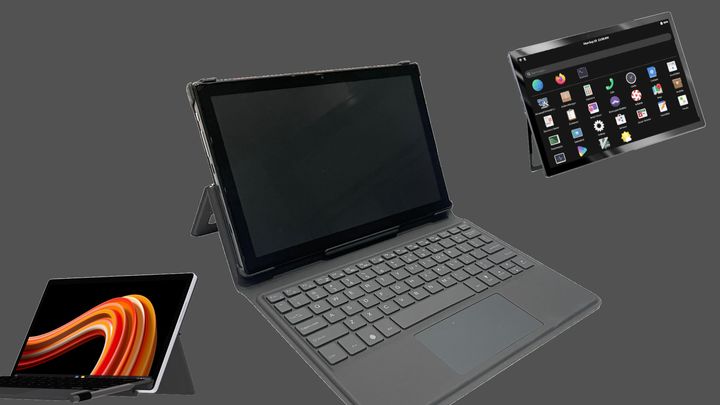
Comments ()